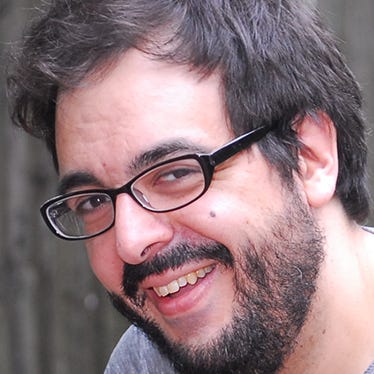A Supplement Cliffhanger
.png?width=850&auto=webp&quality=95&format=jpg&disable=upscale)
LAS VEGAS -- SupplySide West's NDI Town Hall on NDI Guidance was epic, clocking in a three-plus hours of opinion, analysis, and uncertainty. For those seeking closure on a thorny issue, well, let's just say it's a good thing Las Vegas has its share of glittery distractions.
The well-attended Wednesday afternoon session amounted to industry association notables--Michael McGuffin of AHPA, Steve Mister of CRN, John Gay of NPA, and Harry Rice of UNPA--showing the perceived flaws of the draft guidance: the stifling of innovation, the FDA's misplaced burden on ODIs, the dismissal of "synthetics." Also present on the panel was Dr. Daniel Fabricant, director of its Division of the FDA's Dietary Supplement Programs. He said the draft guidance was about "preventative control."
Fabricant declined to answer hypothetical scenarios (which is understandble) and did little to reassure the crowd that FDA sympathized with the industry's concerns. "We don't want to pass something and find out what's in it later," said Prof. Rich Kreider of Texas A&M after posing a question to Fabricant.
Some highlights from the afternoon's event show why this could be a long, long process.
An overstuffed suggestion box: The four industry panelists spent an hour examining the flaws of the NDI Draft Guidance in exacting, gruesome detail. What I mentioned above doesn't even begin to represent the issues expressed. Issues lead to comments—specifically, well-researched ones—which just about every panelist urged companies to provide. FDA, according to Fabricant, must read all of them.
Fabricant couldn't answer when the FDA would review all the comments, saying that "it depends on the comments." Translation: Grab a magazine and get comfortable. This could take a while. The deadline for comments is December 2, so there's still time to share your thoughts.
The public will get involved: This was mentioned by SSC's very own James Gormley (also with Citizens for Health) and Jarrow Formulas' Jarrow Rogovin, who said the existing Draft Guidance should be shredded. The natural product loving public (e.g., health food stores and their customers) was considered a big force in getting
DSHEA passed in 1994. And keep in mind, DSHEA happened well before Facebook, Twitter, tablets, and all those other social network-related goodies.
Dr. Parris Kidd's idea: Near the end of the first, star-studded panel discussion, Kidd observed that FDA and the industry are on two different paths. His solution: Form a committee of twelve scientists (six chosen by FDA, six more chosen by the industry) to meet for a year to come up with a series of safety recommendations. "This document, as it is, is impossible to implement," said Kidd, who added that the draft guidance threatens companies' existence.
If it's going to take several months for FDA to vet all the comments, what's the harm in both sides coming together and trying to reach a compromise? Please comment below on whether you think this is a good idea or to offer your own suggestions.
Orrin Hatch is on the industry's side: Not breaking news, but it's good to know. In a recorded statement, the Utah senator, who has been talking to companies and trade associations about NDI Draft Guidance, urged the industry to take action. "Complacency and inaction could result in federal bureaucracy running the industry," he said.
So, were you at the town hall? What else struck you about the discussions? Are we headed for a battle?
About the Author(s)
You May Also Like






.png?width=800&auto=webp&quality=80&disable=upscale)